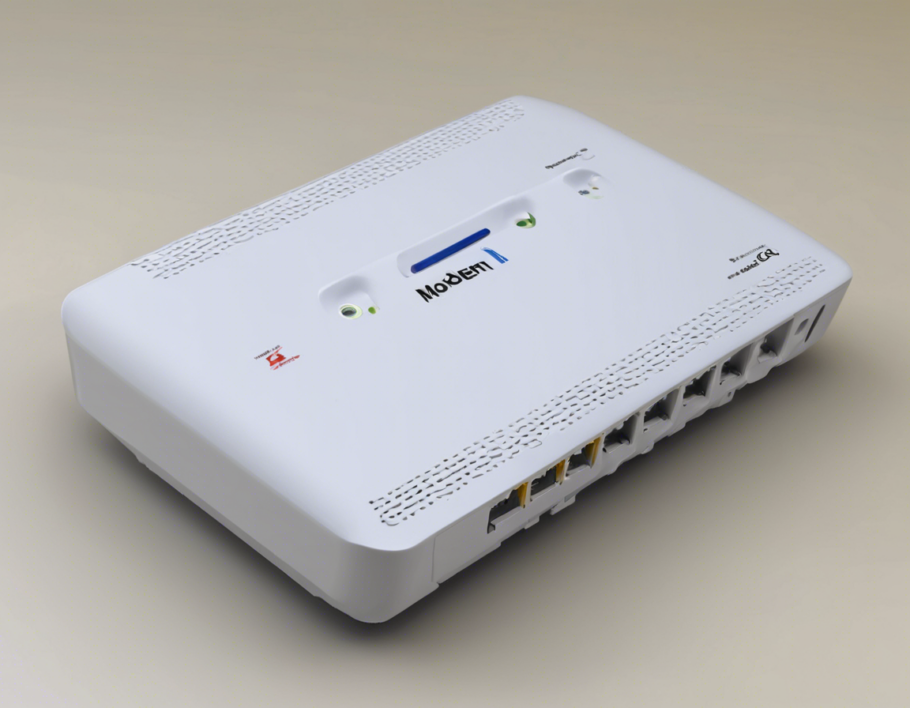The modem is an essential piece of hardware that plays a crucial role in connecting our devices to the internet. In today’s digital age, where everything is interconnected, a reliable and efficient modem is a necessity for accessing the vast ocean of information and services available online. In this article, we will explore the significance of modems, how they work, the different types available, and some key considerations when choosing a modem for your home or business.
Understanding Modems
What is a Modem?
A modem, short for modulator-demodulator, is a device that modulates digital data from a computer or other digital device into an analog signal that can be transmitted over a communication channel, such as a telephone line or cable system. It also demodulates incoming analog signals back into digital data for the receiving device.
How Do Modems Work?
When you request to access a website or send an email, data is transmitted from your device to the modem. The modem then modulates this digital data into an analog signal for transmission over the communication channel. At the receiving end, another modem demodulates the analog signal back into digital data that can be understood by the receiving device. This process allows for data to be transmitted over long distances using various communication mediums.
Types of Modems
Dial-Up Modems
Dial-up modems were popular in the early days of the internet and relied on the telephone line to establish a connection. They are limited in speed and have largely been replaced by faster broadband modems.
DSL Modems
DSL (Digital Subscriber Line) modems use the telephone line to provide high-speed internet access. They are faster than dial-up modems and are widely used for home internet connections.
Cable Modems
Cable modems connect to the internet through a coaxial cable line. They offer higher speeds compared to DSL modems and are commonly used for residential and commercial internet connections.
Fiber Optic Modems
Fiber optic modems use fiber optic cables to transmit data at very high speeds. They offer the fastest internet connections available and are ideal for high-demand applications such as online gaming and 4K video streaming.
Considerations When Choosing a Modem
Speed
When selecting a modem, consider the speed requirements of your internet activities. Choose a modem that can handle the bandwidth needed for smooth browsing, streaming, gaming, and other online tasks.
Compatibility
Ensure that the modem you choose is compatible with your internet service provider (ISP) and the type of internet connection available in your area. Some ISPs may require specific modems for their services.
Security
Security is paramount when it comes to internet connectivity. Look for modems with built-in security features such as firewalls and encryption to protect your network from cyber threats.
Reliability
Choose a modem from a reputable manufacturer known for producing reliable and durable hardware. A reliable modem will ensure a stable internet connection with minimal downtime.
Future-Proofing
Consider future-proofing your setup by choosing a modem that supports the latest technologies and standards. This will ensure that your internet connection remains fast and efficient as technology advances.
Frequently Asked Questions (FAQs) About Modems
1. What is the difference between a modem and a router?
A modem is used to establish a connection to the internet, while a router is used to distribute this internet connection to multiple devices within a network.
2. Can I use any modem with my internet service provider?
Not all modems are compatible with all ISPs. Check with your ISP for a list of approved modems that work with their services.
3. Do I need a modem if I have a router?
Yes, a modem is still required to establish the internet connection. The router then distributes this connection to your devices.
4. How often should I upgrade my modem?
It is recommended to upgrade your modem every few years to take advantage of the latest technology and faster internet speeds.
5. Are there modems that work with both DSL and cable connections?
Some modems are compatible with multiple types of internet connections. Check the specifications of the modem to ensure it supports your connection type.
6. Can I install a modem myself?
Yes, most modems are plug-and-play devices that can be easily set up by following the manufacturer’s instructions. However, some ISPs may require professional installation.
7. What should I do if my modem keeps losing connection?
Try resetting your modem by unplugging it for a few seconds and then plugging it back in. If the issue persists, contact your ISP for assistance.
8. Are there modems specifically designed for gaming?
Some modems are optimized for gaming and offer features such as low latency and quality of service (QoS) settings to enhance the gaming experience.
9. Can I use a modem with a cellular connection?
Yes, there are modems available that support cellular connections, allowing you to access the internet using a cellular network.
10. How do I know if my modem is outdated?
If you are experiencing slow internet speeds, frequent disconnections, or have had your modem for several years, it may be time to upgrade to a newer model.
In conclusion, modems are essential devices for establishing internet connections and are available in various types to suit different needs. When choosing a modem, consider factors such as speed, compatibility, security, reliability, and future-proofing to ensure optimal performance and connectivity. By understanding how modems work and selecting the right modem for your setup, you can enjoy a seamless and efficient online experience.

